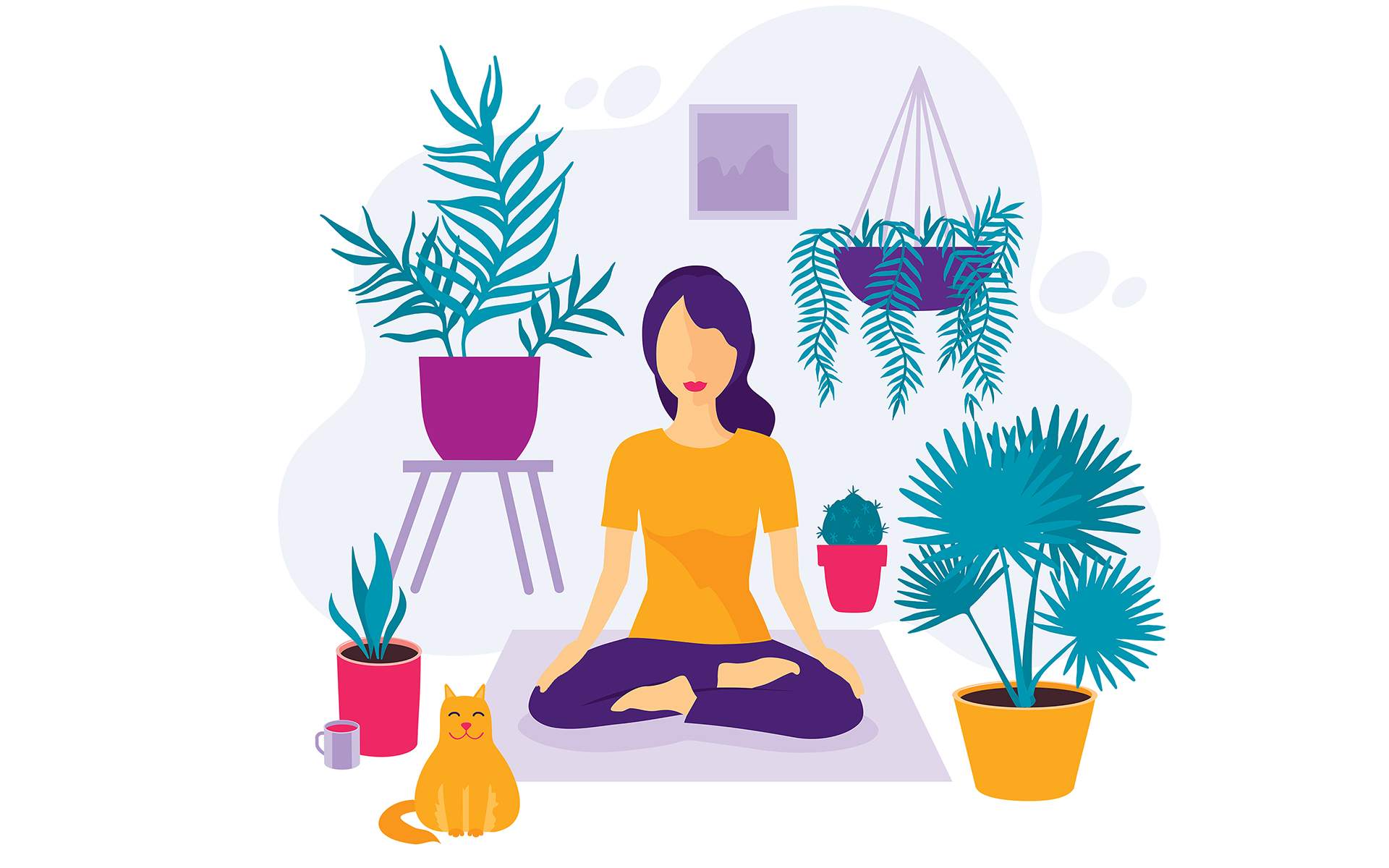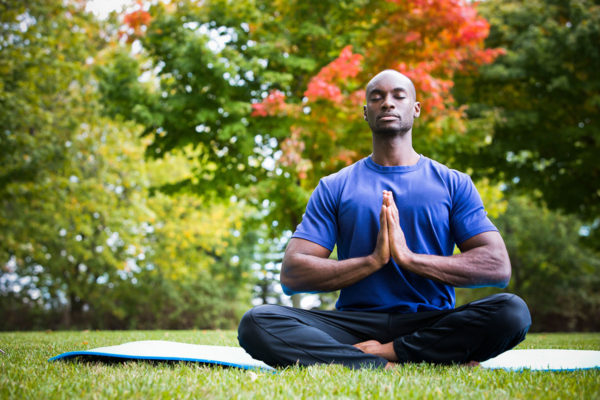What Is Meditation, What It's For, And How To Start Practicing
Discover what meditation is, what the benefits are and how you can apply these practices to improve your well-being and inner health.
Meditation is one of the most powerful practices for transforming your quality of life, reducing stress and improving physical and mental well-being. Used for thousands of years in Eastern cultures, this ancient technique has gained increasing scientific recognition for its proven health benefits.
According to research from Harvard Medical School published in Psychiatry Research: Neuroimaging, regular meditation practice can cause significant changes in the brain, increasing gray matter in areas responsible for memory and learning. Results show that just a few weeks of practice are sufficient to notice improvements in focus, concentration and emotional control.
If you're looking for a natural way to reduce stress and improve your mental health, this complete guide will teach you everything about meditation and how to incorporate it into your routine.
Navigation Menu
- What Is Meditation
- Main Benefits of Meditation
- How to Start Meditating: Step by Step
- Most Popular Types of Meditation
- Tips to Maintain Regular Practice
- Recommended Resources
What Is Meditation
Meditation is a technique that allows you to guide the mind to a state of calm and relaxation through body posture and attention focus. This ancient practice aims to integrate body and mind, promoting sensations of tranquility and inner peace.
Unlike what many people think, meditating doesn't mean completely "emptying the mind." In fact, it's about developing full awareness of the present moment, observing thoughts and sensations without judgment.
Meditation can be practiced by anyone, regardless of age, religion or physical condition. It doesn't require special equipment or specific locations - you can meditate at home, at work, or even during a walk.
The National Center for Complementary Health of the United States defines meditation as a variety of practices that focus on integrating the body with the mind, used to provide sensations of calm and general well-being.

Main Benefits of Meditation
The health benefits of meditation are scientifically proven and cover both physical and mental aspects. With regular practice, it's possible to notice significant improvements in various areas of life.
Mental Health Benefits
Meditation is extremely effective in controlling stress and anxiety. It works directly on cortisol regulation, known as the stress hormone, promoting a natural feeling of relaxation.
Research shows that regular practice helps in treating depression and significantly decreases chances of relapse. This happens because meditation develops the ability to observe negative thoughts without identifying with them.
Sleep also improves considerably with meditation practice. It reduces insomnia and promotes more peaceful falling asleep, as it calms the mind before rest.
Physical Health Benefits
Besides mental benefits, meditation brings important improvements to physical health. It helps control blood pressure, being a natural ally in hypertension treatment.
For people with diabetes, regular practice contributes to better glycemic control. The relaxation promoted by meditation positively influences metabolism and hormonal regulation.
The immune system also receives a significant boost. Studies indicate that regular meditation practitioners show greater resistance to viruses, bacteria and other microorganisms.
Productivity and Focus Benefits
Meditation is a powerful tool for improving focus and productivity at work and studies. It develops concentration ability and helps maintain attention on important tasks.
Regular practice also increases creativity and cognitive flexibility, making it easier to find innovative solutions to everyday problems.
How to Start Meditating: Step by Step
Starting to meditate is simpler than many people imagine. Following some basic steps, you can establish a regular practice and start reaping the benefits quickly.
1. Set Aside Specific Time
The first step is to separate a specific moment of the day for practice. Ideally, 5 to 20 minutes are already sufficient for beginners. You can choose to meditate in the morning, to start the day with more tranquility, or at night, to relax before sleeping.
Consistency is more important than duration. It's better to meditate 5 minutes every day than 30 minutes only once a week.
2. Find a Suitable Location
Look for a space where you can sit comfortably with minimal distractions. It can be a quiet room, a garden, or even your office chair during a work break.
The environment doesn't need to be perfect - the important thing is that you feel relatively peaceful and can concentrate for a few minutes. Having the right yoga blocks for support can help maintain proper posture during longer sessions.
3. Adopt a Comfortable Posture
The classic position is the lotus posture, sitting with crossed legs, but it's not mandatory. You can sit in a chair, bench, or even lie down, as long as you keep your spine straight and shoulders relaxed.
Place your hands comfortably - on your lap, one over the other, or one on each knee. Close your eyes gently and allow muscles to relax naturally.

4. Focus on Breathing
Start by directing your attention to breathing. Take deep breaths, using both belly and chest, followed by slow and relaxing exhalations.
A simple technique is to count to four during inspiration and repeat the same count on expiration. Don't force breathing - let it flow naturally after establishing the rhythm.
5. Maintain Focus
During meditation, it's normal for various thoughts to arise. Don't fight against them - simply observe their arrival and departure, gently returning your attention to breathing or your chosen focus point.
With practice, it will become easier to maintain concentration for longer periods. Be patient with yourself during this learning process.
Most Popular Types of Meditation
There are various types of meditation, each with specific characteristics. Knowing different approaches can help you find the one that best adapts to your profile and needs.
Guided Meditation
This is an excellent option for beginners. In guided meditation, an instructor (in-person or through audio) guides you throughout the entire session, directing your attention and suggesting visualizations.
Many apps and online videos offer guided meditation sessions, making this practice very accessible for those starting out. Consider using sleep headphones designed for meditation to enhance your guided practice sessions.
Mantra Meditation
In this type of meditation, you repeat a specific word, sound or phrase throughout the entire session. The most known mantra is "Om," but you can choose any word that has positive meaning for you.
Mantra repetition helps maintain focus and prevents the mind from dispersing with other thoughts. It's a particularly useful technique for people who have difficulty concentrating.
Mindfulness Meditation
Mindfulness, or full attention, involves consciously observing everything that happens in the present moment - thoughts, emotions, physical sensations - without judgment or attempt to change.
This approach develops greater self-awareness and about how you react to different everyday situations. It's particularly effective for improving mental health and emotional control.
Tips to Maintain Regular Practice
Establishing a consistent meditation routine can be challenging at first. Here are some practical strategies to maintain motivation and make meditation a lasting habit.
Start Small and Be Consistent
Don't try to meditate for 30 minutes right on the first day. Start with short 5-minute sessions and gradually increase as you feel more comfortable with the practice.
Regularity is fundamental - it's better to meditate 5 minutes every day than to have long sporadic sessions. Treat meditation as a commitment to yourself.
Choose the Best Time
Try meditating at different times of the day to discover when it works best for you. Some people prefer morning to start the day centered, others opt for late afternoon to decompress.
Whatever time you choose, try to keep it consistent. This helps create a natural habit and makes it easier to remember to practice. For deeper relaxation during evening sessions, many practitioners find that white noise machines help create the perfect ambient environment.
Use Apps and Support Resources
There are various free and paid apps that can help you maintain practice. They offer guided meditations, daily reminders and even statistics about your progress.
Some resources also allow participation in virtual meditation groups, which can be motivating to maintain consistency.
Be Patient with the Process
Remember that meditation is a skill that develops over time. Don't expect immediate results or get frustrated if your mind is agitated in the first days.
Each session is valid, even those where you feel you "couldn't meditate properly." The very perception that the mind is agitated is already a sign of greater awareness.
Recommended Resources
To deepen your knowledge about meditation and establish a solid practice, there are various resources that can be very useful. We've selected some of the best available options.
Books About Meditation
Reading specialized books can provide a solid theoretical foundation and different perspectives on meditation practice.
For those seeking timeless wisdom, Meditations by Marcus Aurelius offers profound insights into mindfulness and self-reflection through the lens of Stoic philosophy.
If you prefer a structured daily approach, The Daily Stoic: 366 Meditations on Wisdom, Perseverance, and the Art of Living provides daily meditative exercises that can complement your practice.
For those dealing with difficult emotions, When Things Fall Apart: Heart Advice for Difficult Times offers compassionate guidance on using meditation during challenging periods.
Creating the Perfect Meditation Space
Having a dedicated space for practice can significantly enhance your meditation experience. Consider creating a peaceful environment with elements that promote relaxation and focus.
An incense holder with natural scents can help signal to your mind that it's time to transition into a meditative state, while supportive props ensure physical comfort throughout your session.
Integrating with Other Practices
Meditation combines perfectly with other wellness practices. Consider exploring mindful eating approaches or integrating your practice with physical activities.
Many people report that meditation enhances their mind-body connection during workouts, leading to more focused and effective training sessions.
Conclusion
Meditation is a powerful and accessible tool to significantly improve your quality of life. With just a few minutes daily of practice, you can experience benefits like stress reduction, improved sleep, increased concentration and immune system strengthening.
The most important thing is to start, even with short 5-minute sessions. Remember that consistency is more valuable than session duration. With patience and dedication, meditation can become a transformative habit in your wellness and health journey.
Choose the type of meditation that most resonates with you, use available resources and be gentle with yourself during the learning process. Benefits will come naturally with regular practice, contributing to a more balanced, conscious and fulfilling life.

